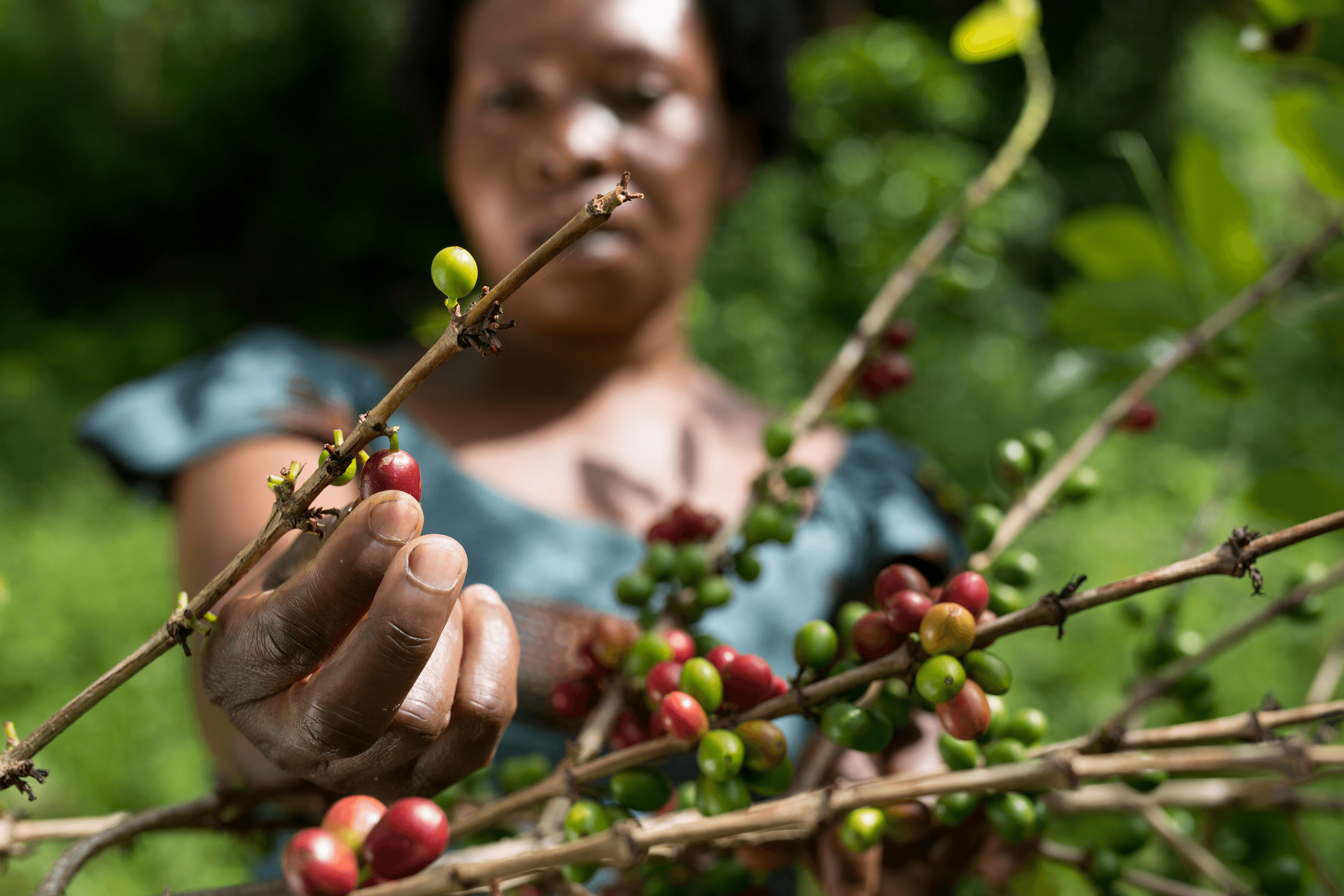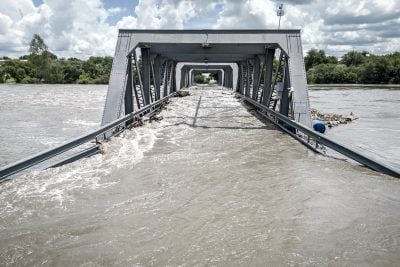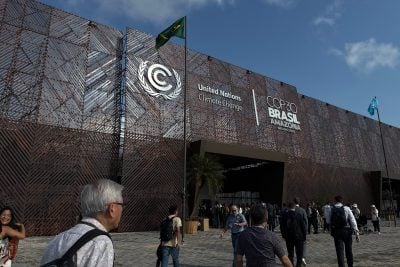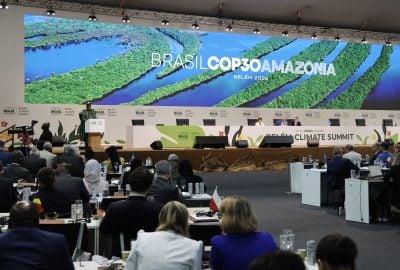This article was produced with the support of Olam Agri
The recent announcement of Nespresso’s commitment to restore DRC coffee production is a great sign of the revival of the coffee industry in the DRC. It is the result of many years of work to rebuild the Congolese coffee industry and the local economy.
In this article, Alain DeChef, Country Manager, Virunga Coffee talks to us about the efforts being made to improve the reputation of Congolese coffee, boost the incomes of smallholder coffee growers and provide more opportunities for women in the company.
Can you tell us more about the journey and efforts to improve the quality and reputation of Congolese coffee?
Annual coffee exports have declined sharply since the 1980s. At that time, Zaire was exporting more or less 100 to 120,000 metric tonnes (mt) of coffee annually while in 2020 the DRC approximately exports 11,000 mt. In 2008, exports hit a low point of just 8,000 mt.
Several factors contributed to this drastic decrease:
- General aging and the non-renewal of coffee fields;
- Lack of farmers’ supervision;
- Strong competition from neighbouring countries that have a much more advantageous tax regime for exports, which encourages massive fraud (estimated at more than 60 per cent of Congolese national production);
- Diseases such as tracheomycosis, which have strongly affected Robusta fields in Ituri and the Beni areas;
- Deterioration in the monitoring of the processing and quality of exported coffee, which has had a negative influence on the reputation of Congolese coffee;
- Wars and armed conflicts in the Kivus.
Virunga coffee has been active in the DRC since 2011 and has set itself the goal of restoring the reputation of Congolese coffee and rekindling demand for this origin. To achieve this, it was essential to work on two critical pillars: quality and production.
Quality wise, the important thing was to be able to offer consumers throughout the world the whole range of Congolese coffee, both commercial and specialty coffee. However, specialty coffee production in 2011 was in its infancy (less than 300mt/year), while these processes had already been mastered by other coffee producing countries for several years.
Virunga Coffee was one of the pioneers in the construction of washing stations and we invested heavily in the training of our production staff. Today we have seven washing stations in operation, and we are planning to build more units in the next few years.
We also wanted to diversify our offer and attract new customers to the Congolese market. In partnership with Elan RDC, we have built drying stations in South Kivu to produce the first ‘Sun-dried’ coffee in DRC (commonly known as Natural).
This coffee, whose transformation process was borrowed from Ethiopia, is a first in the DRC. This attempt has been successful and for some time now, we are seeing that several other players in the DRC have also adopted sun-dried processes. This is positive for the sector.
We also are investing heavily in the distribution of materials (tarpaulins for drying coffee in the bush, basins for fermenting parchment, wooden pulping machines, pruning shears, handsaws, wooden signs to raise awareness of good agricultural practices) for farmers in order to re-engage them in coffee growing, and continue to improve their production processes for commercial coffee (washed k4 or hulled k4 type), which for several decades have been inconsistent in terms of cupping scores due to poor practices and farmers’ limited financial resources.
We also take a special interest in all our production lines and are continually trying to solve problems and improve our procedures in order to guarantee the best possible quality.
The second essential pillar is production.
Today, national coffee production in the DRC is in freefall; the country has lost 75% of its coffee production within 40 years, which is a disaster for the sector and the farmers who made a living from the production of this raw material. If we do not act quickly to revive production, it will continue to plummet.
Since 2014 Virunga coffee has been the country’s leading producer of coffee seedlings, producing more than three million Arabica seedlings and three hundred thousand shade trees. This represents a production of about 750 tonnes of green coffee per year. However, this does not increase production but just serves to make up for the decrease that continues throughout the country. I believe that public and private efforts should all turn to large-scale seedling production if we don’t want to see Congolese coffee disappear in the end.
This year, in collaboration with Elan, we launched a rejuvenation pruning campaign across the two Kivus for 180,000 aging coffee trees owned by 6,000 beneficiaries.
We are currently training and supervising 150 young seasonal workers from the production zones to become pruning specialists. Our objective is that after two pruning seasons, these young specialists will be able to start their own income-generating activity and work in groups to offer their services to the farmers in exchange for remuneration.
Ideally, we should be able to produce a minimum of 50-60 million seedlings per year and launch massive campaigns in order to return to the production levels of the 1970s within fifteen years.
As I speak, the perception of Congolese coffee is gradually changing thanks to the work of farmers, exporters, traders and roasters.
Congo has all the assets to write a completely different story outside the clichés we all know: the story of a Central Africa with lush forests, and unique fauna such as gorillas, okapis and bonobos (the best known). The story of majestic landscapes where coffee trees grow on the shores of Lake Edouard & Lake Kivu and at the foot of Mount Rwenzori and Nyiragongo.
I sincerely believe that Congolese coffee and the Congolese people deserve it. After all, we are talking about coffee from the Heart of Africa. We often hear about Ethiopia with the origin of the Arabica, but not enough about the Congo, while Robusta coffee is native to this beautiful country.
Since 2015, ELAN RDC and Virunga Coffee have worked in partnership. As a development programme, Elan’s objectives are to increase the incomes of women and men smallholder farmers through improved product quality and volume. How does this resonate with your objectives? How do you assess this collaboration?
The partnership with Elan RDC since 2015 has been a great success and has allowed us to market different types of quality (fully washed, sun-dried, Honey process) and to obtain the organic and UTZ certifications.
As a result of this joint effort, the coffee produced has allowed us to obtain better prices from roasters and to have a direct impact on the purchase prices we can give to growers and suppliers.
Each intervention carried out with Elan considers the lessons learned on good agricultural practices. This has been done through agronomists who visit all our areas of action, allowing both the teaching of good agricultural practices and the identification of coffee stocks at harvest time. As a result, farmers have been able to benefit from better incomes (sometimes doubling the price of their coffee per kg) and better yields from their fields.
In addition, the nature of coffee work intrinsically requires a lot of physical effort, especially in the water-intensive ripening and pulping of the cherries. Drawing water, which is rarely done on the farm site, is a task for women. These steps disappear when this transformation is now carried out at our washing stations. Finally, the work carried out at processing sites is often labour intensive. Thus, many villagers have been able to benefit from stable employment at one of our sites.
In conclusion, the farmers have improved their incomes and farming skills (resulting in better field yields) by reducing the workload associated with processing; villagers have obtained jobs and Virunga Coffee has been successful in its export operations.
Today, we have another major operation with Elan to rejuvenate the orchards. We are in the process of producing more than one million Arabica and Robusta seedlings to make them available to the growers working with our company.”
What are you expecting from the result of integrating gender considerations (e.g. recruiting more women agronomists, etc.) into your work will be?
At VC, our general policy is to find a balance between the different positions in the company and to reach 50% women in general. This is not possible for all positions, such as warehouseman (100% men) or sorting (100% women).
We also employ a lot of women in our washing stations. These women come from rural areas and the station represents a financial windfall for them. We try to capitalize on the older employees by training them and giving them positions of responsibility. Many of these employees are women who have been with us for years now. However, this approach is still sometimes misunderstood by men and changing attitudes is a long-term process.
 Sign in with Google
Sign in with Google 



